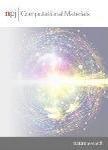Discovering plasticity models without stress data
作者机构:Department of Mechanical and Process EngineeringETH Zürich8092ZürichSwitzerland Department of Materials Science and EngineeringDelft University of Technology2628 CDDelftThe Netherlands
出 版 物:《npj Computational Materials》 (计算材料学(英文))
年 卷 期:2022年第8卷第1期
页 面:857-866页
核心收录:
学科分类:08[工学] 0805[工学-材料科学与工程(可授工学、理学学位)] 080502[工学-材料学]
主 题:stress plasticity selecting
摘 要:We propose an approach for data-driven automated discovery of material laws,which we call EUCLID(Efficient Unsupervised Constitutive Law Identification and Discovery),and we apply it here to the discovery of plasticity models,including arbitrarily shaped yield surfaces and isotropic and/or kinematic hardening *** approach is unsupervised,i.e.,it requires no stress data but only full-field displacement and global force data;it delivers interpretable models,i.e.,models that are embodied by parsimonious mathematical expressions discovered through sparse regression of a potentially large catalog of candidate functions;it is one-shot,i.e.,discovery only needs one *** material model library is constructed by expanding the yield function with a Fourier series,whereas isotropic and kinematic hardening is introduced by assuming a yield function dependency on internal history variables that evolve with the plastic *** selecting the most relevant Fourier modes and identifying the hardening behavior,EUCLID employs physics knowledge,i.e.,the optimization problem that governs the discovery enforces the equilibrium constraints in the bulk and at the loaded boundary of the *** promoting regularization is deployed to generate a set of solutions out of which a solution with low cost and high parsimony is automatically *** virtual experiments,we demonstrate the ability of EUCLID to accurately discover several plastic yield surfaces and hardening mechanisms of different complexity.



